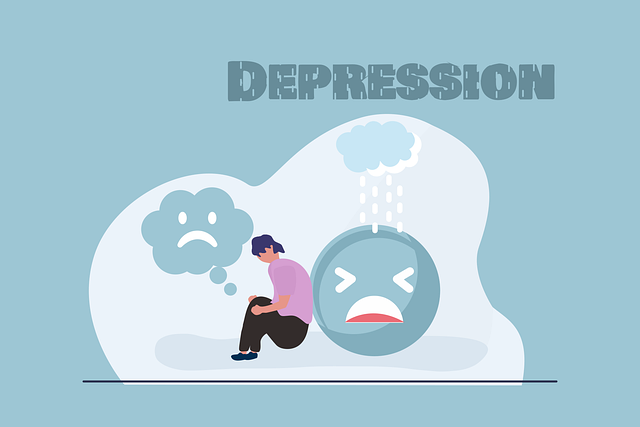Oregon's civil commitment process is a multi-step, legally structured pathway for individuals with severe mental health conditions or addiction to access necessary treatment. It begins with a qualified healthcare provider assessing eligibility criteria and filing a court petition if warranted. The commitment procedural guide outlines subsequent stages including court reviews, expert evaluations, and potential orders for civil commitment leading to specialized care in suitable facilities. Understanding this intricate process is crucial for seekers, family members, and caregivers navigating Oregon's legal landscape to ensure access to adequate mental health treatment.
Oregon’s civil commitment journey involves a multifaceted legal process designed to provide support and treatment for individuals with severe mental health conditions. This article offers an in-depth overview of the Oregon civil commitment process, from initial assessment and intervention to court hearings, judicial oversight, and post-commitment care. Understanding these key stages is essential for navigating the complexities of Oregon’s legal commitment process, ensuring due process rights, and exploring potential dismissal options.
- Understanding Oregon's Civil Commitment Laws
- – Definition and Purpose of Civil Commitment in Oregon
- – Who Can Be Committed and Under What Circumstances
- The Oregon Civil Commitment Process: Step-by-Step
Understanding Oregon's Civil Commitment Laws

Oregon’s civil commitment laws provide a structured process for individuals with serious mental health conditions to receive necessary treatment. The Oregon civil commitment process involves several key steps, ensuring a fair and transparent procedure. It begins with an assessment by a qualified medical professional who determines if an individual meets the criteria for involuntary commitment due to severe mental illness or addiction. If so, a petition is filed in court, initiating the legal commitment process.
The commitment procedural guide in Oregon outlines the subsequent stages. The court reviews the petition and may order an evaluation by a mental health expert. If the evidence supports the need for treatment, the court issues an order for civil commitment, typically involving placement in a suitable facility or program. Understanding the commitment process is crucial for those in need of support as well as for family members and caregivers navigating this complex legal landscape.
– Definition and Purpose of Civil Commitment in Oregon

In Oregon, civil commitment is a legal process designed to ensure the safe management and treatment of individuals with serious mental health conditions who pose a danger to themselves or others. Unlike involuntary commitment, which typically occurs in emergency settings, civil commitment involves a more structured and voluntary approach, where individuals consent to treatment as an alternative to incarceration. The Oregon civil commitment process is a multi-step procedure that guides individuals and medical professionals through a series of legal and clinical evaluations to determine the most appropriate course of action.
Understanding the commitment process in Oregon begins with recognizing its purpose: to balance individual liberties with public safety. The initial stages involve an assessment by qualified healthcare providers, followed by a petition filing in court. This is where the Oregon civil commitment process officially commences, outlining the specific reasons for the commitment request and the grounds upon which it’s based. Subsequent steps include court hearings, where both the individual and their medical team present evidence, leading to a final decision on whether to grant or deny the commitment. Each stage is meticulously designed to uphold legal rights while ensuring access to adequate mental health treatment.
– Who Can Be Committed and Under What Circumstances

In Oregon, civil commitment is a legally defined process to ensure the safety of individuals suffering from severe mental health conditions who pose a danger to themselves or others. The Oregon civil commitment process is designed to balance the rights of individuals with serious mental illnesses while also protecting public safety. Under Oregon law, anyone aged 18 or older can be considered for civil commitment if they meet specific criteria. This typically involves demonstrating that the individual has a severe mental disorder, such as schizophrenia or bipolar disorder, and that their condition results in an inability to care for themselves or poses a risk of harmful behavior.
The mental health commitment steps in Oregon involve a multi-stage process guided by legal professionals and mental health experts. It usually begins with an evaluation by a qualified healthcare provider who documents the individual’s condition and its impact on their ability to function. This is followed by court proceedings where a judge reviews the evidence and determines whether civil commitment is appropriate. If committed, the individual is placed in a suitable facility for treatment and rehabilitation, with regular court reviews to assess progress and ensure continued necessity for commitment. Understanding this commitment process is crucial for both individuals seeking help and those supporting them, as it outlines the rights and steps involved in what can be a delicate and significant decision.
The Oregon Civil Commitment Process: Step-by-Step

The Oregon civil commitment process is a legally defined procedure to ensure individuals with severe mental health conditions receive appropriate care. It involves several steps designed to protect both the individual’s rights and their safety. The process begins with an evaluation by a qualified medical professional, who determines if the person meets the criteria for involuntary commitment. This assessment considers the individual’s ability to take care of themselves and any potential risk to themselves or others.
If the evaluation suggests a need for civil commitment, a petition is filed in court. This typically involves input from both the evaluating healthcare provider and the individual’s support network. The court then reviews the case, considering evidence and testimony before making a decision on whether to grant the petition. If approved, the committed person will be placed in an appropriate treatment facility, where they can access specialized care tailored to their needs. Understanding these commitment process stages is crucial for both those seeking help and their support systems in navigating Oregon’s mental health commitment system.






